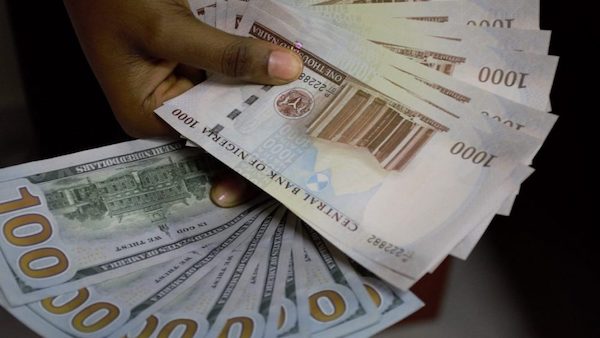Business
Naira devaluation could negatively impact foreign currency loans –Report

Naira devaluation against other currencies around the world could weigh on loans sourced in foreign currencies and, in so doing, weaken the capital base of banks, the Afrinvest Banking Sector Report for 2020 issued on Tuesday said.
The document affirmed that the capital base of the Nigerian banking industry had come under strain by reason of the adoption of the International Financial Reporting Standards.
The unfriendly business ambience has accelerated the incidence of non-performing loans and substantial write-offs, which has heightened asset deterioration in the loan portfolios of lenders.
Equally, naira devaluation and poorer asset quality has made the capital adequacy ratio of banks vulnerable in the short term.
The Central Bank of Nigeria (CBN) weakened the naira for the third time this year on 30th of November in its latest naira devaluation exercise as the apex bank struggled to curb dollar demands amid lower-than-expected inflows of foreign exchange into the economy.
The naira devaluation round saw the regulator adjust the rate bureau de change operators could sell the local currency to N392 per dollar from N386. Traders will now buy dollar at N390 in contrast to the previous N384 rate of exchange while international money transfers will be exchanged at banks at N388 per dollar, up from N382.
The Afrinvest report envisaged that naira devaluation would inflate industry foreign currency loans, dominated by oil and gas, general commerce, manufacturing as well as other import-reliant sectors.
It projected that the industry would require recapitalisation in the short to medium term as the CBN hinted.
“The underpriced valuation of the banking sector many hurt banks seeking to raise tier-1 capital while tier-2 capital funding cost may be unaffordable to the current risk environment.
Read also: Nigeria has never benefited from naira devaluation –Buhari
“The CBN directed that the minimum interest rate on savings deposit be reduced to a minimum of 10 per cent of Monetary Policy Rate (1.25 per cent), the previous minimum of 30 per cent of MPR (3.75 per cent) effective from September 1, 2020,” Afrinvest said.
It noted that savings deposits accounted for around one-fifth of the total industry deposit in Nigeria while commercial banks were anticipated to benefit from it in terms of moderation in the general cost of fund.
“In the same vein, with 100 basis points drop in Monetary Policy Rate to 11.5 per cent as well as the adjustment of the asymmetric corridor to +100/-700 basis points, banks with lower liquidity gap would enjoy lower cost from the CBN’s lending window, specifically the standing lending facility.
“On the growth loan book, it said that in 2020, analysts expect to see a sustained increase in the industry total loans as commercial banks comply with the CBN Loan to Deposit Ratio directive among others,” Afrinvest said.
Join the conversation
Support Ripples Nigeria, hold up solutions journalism
Balanced, fearless journalism driven by data comes at huge financial costs.
As a media platform, we hold leadership accountable and will not trade the right to press freedom and free speech for a piece of cake.
If you like what we do, and are ready to uphold solutions journalism, kindly donate to the Ripples Nigeria cause.
Your support would help to ensure that citizens and institutions continue to have free access to credible and reliable information for societal development.
























